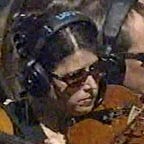TheoArtistry:
Theologians and Composers in Creative Partnership
written by George Corbett
The typical postwar zeitgeist of British conservatories and musical departments has been that music is “complete in itself” and any outside influence — such as religion — is “extraneous and irrelevant.” Sir James MacMillan, an overtly religious composer, has lamented this divorce of music from any extra-musical inspiration, whether religious or not. In 2015, he joined the Institute for Theology, Imagination and the Arts (ITIA), in the University of St Andrews’ School of Divinity, as a part-time professor. I sought to find a way with him to re-engage composers and musicians with the creative inspiration that can come from an encounter with Scripture, theology, and Christian culture.
Toward this end, I founded TheoArtistry in 2016, and collaborated with MacMillan on our first TheoArtistry Composers’ Scheme. We selected six composers from almost 100 applicants, and gave them the opportunity to collaborate with theologians in ITIA, leading to six new choral works. Today as in the past, some composers and musicians have faith commitments, while others are atheist or agnostic. And often, it can be difficult to pigeonhole them either way. For the collaborations, we did not request that either the theologians or the composers had any faith background. Instead, we actively encouraged any engagement with the Christian tradition (reverent, irreverent, playful, provocative, etc.) in the confidence that, as in the past, such engagement would be creatively fruitful.
We did establish, however, a strict framework for the theologian-composer partnerships, and we commissioned a video documentary to chart the scheme. In the first two months, the theologians researched passages in the Old Testament. Over the next three months, the theologians and composers collaborated together through one-to-one meetings (via Skype) and continued email correspondence. In the final month, the first drafts of the new compositions were rehearsed in a workshop with MacMillan. Finally, the six new compositions were recorded alongside five works by MacMillan and four works by his contemporaries or key influences.
What happens in the artistic encounter with theology? I like the scriptural image of water and wine: there is a sense, I think, in which music can be transformed by the encounter. Music that sets a sacred text goes far beyond it, revealing the mysteries of religion in a way that words alone cannot. Music can come not to serve theology but to be theology or, more exactly, theoartistry, insofar as it may reveal God in a new way through artistry.
If you are interested in these collaborations, I invite you to read the reflections by those involved in the project, and listen to the printed scores, via our open-access volume Annunciations: Sacred Music for the Twenty-First Century (Cambridge: Open Book Publishers, 2019). We think this may be a first also for musical publishing (i.e. where you can read the musical score, and listen to the music, at the click of a button).
The project was so fulfilling for the theologians, composers and musicians involved that this year we are launching a new collaborative MLitt in Sacred Music, with our first cohort starting in September 2020. Please spread the word!
George Corbett is Senior Lecturer in Theology and the Arts at the University of St. Andrews.
